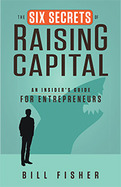Search Results: "Social Venture Networks"
Results 79-84 of 404
Privatization has been on the right-wing agenda for years. Health care, schools, Social Security, public lands, the military, prisons-all are considered fair game. Through stories, analysis, impassioned argument-even song lyrics-Si Kahn and Elizabeth Minnich show that corporations are, by their very nature, unable to fulfill effectively what have traditionally been the responsibilities of government. They make a powerful case that the market is not the measure of all things, and that a vital public sector is an indispensable component of a healthy democracy.
Si Kahn's impromptu song at BK Author Day Lunch Meeting
It may be hard to believe in an era of Walmart, Citizens United, and the Koch brothers, but corporations are on the decline. The number of American companies listed on the stock market dropped by half between 1996 and 2012. In recent years we've seen some of the most storied corporations go bankrupt (General Motors, Chrysler, Eastman Kodak) or disappear entirely (Bethlehem Steel, Lehman Brothers, Borders).
Gerald Davis argues this is a root cause of the income inequality and social instability we face today. Corporations were once an integral part of building the middle class. He points out that in their heyday they offered millions of people lifetime employment, a stable career path, health insurance, and retirement pensions. They were like small private welfare states.
The businesses that are replacing them will not fill the same role. For one thing, they employ far fewer people—the combined global workforces of Facebook, Yelp, Zynga, LinkedIn, Zillow, Tableau, Zulily, and Box are smaller than the number of people who lost their jobs when Circuit City was liquidated in 2009. And in the “sharing economy,” companies have no obligation to most of the people who work for them—at the end of 2014 Uber had over 160,000 “driver-partners” in the United States but recognized only about 2,000 people as actual employees.
Davis tracks the rise of the large American corporation and the economic, social, and technological developments that have led to its decline. The future could see either increasing economic polarization, as careers turn into jobs and jobs turn into tasks, or a more democratic economy built from the grass roots. It's up to us.
Gerald Davis argues this is a root cause of the income inequality and social instability we face today. Corporations were once an integral part of building the middle class. He points out that in their heyday they offered millions of people lifetime employment, a stable career path, health insurance, and retirement pensions. They were like small private welfare states.
The businesses that are replacing them will not fill the same role. For one thing, they employ far fewer people—the combined global workforces of Facebook, Yelp, Zynga, LinkedIn, Zillow, Tableau, Zulily, and Box are smaller than the number of people who lost their jobs when Circuit City was liquidated in 2009. And in the “sharing economy,” companies have no obligation to most of the people who work for them—at the end of 2014 Uber had over 160,000 “driver-partners” in the United States but recognized only about 2,000 people as actual employees.
Davis tracks the rise of the large American corporation and the economic, social, and technological developments that have led to its decline. The future could see either increasing economic polarization, as careers turn into jobs and jobs turn into tasks, or a more democratic economy built from the grass roots. It's up to us.
They Just Don't Get It! explores an all-too-common dilemma: when people around us just don't "get" our ideas. Through a charming illustrated fable, it tells the story of Julie Buffet, a hard-charging advertising executive with what she thinks is a fantastic idea for a new campaign. But nobody gets it-not the client, not her boss, and not her coworkers. And Julie can't understand why.
We have all found ourselves in this situation at one time or another, and we typically see this problem as a failing on the part of the other party. They Just Don't Get It! shows that when they don't get it, the problem is really with ourselves. And it shows how we can finally really get it.
If you've ever wondered why your ideas haven't been received or acted on in the way you expected, this book will reveal your own personal responsibility in helping others understand your intentions. Examining the root source of the problem, it details five keys to "getting it"-Take Responsibility; Practice Humility; Begin with Questions; Remain Open; and Believe They Can. These five simple steps will enable you to overcome the problem, and prevent it from happening in the future.
They Just Don't Get It! will teach you how to communicate your ideas better, and how to motivate others to pull together and achieve your highest goals in any situation.They Just Don't Get It! explores an all-too-common dilemma: when people around us just don't "get" our ideas. Through a charming illustrated fable, it tells the story of Julie Buffet, a hard-charging advertising executive with what she thinks is a fantastic idea for a new campaign. But nobody gets it-not the client, not her boss, and not her coworkers. And Julie can't understand why.
We have all found ourselves in this situation at one time or another, and we typically see this problem as a failing on the part of the other party. They Just Don't Get It! shows that when they don't get it, the problem is really with ourselves. And it shows how we can finally really get it.
If you've ever wondered why your ideas haven't been received or acted on in the way you expected, this book will reveal your own personal responsibility in helping others understand your intentions. Examining the root source of the problem, it details five keys to "getting it"-Take Responsibility; Practice Humility; Begin with Questions; Remain Open; and Believe They Can. These five simple steps will enable you to overcome the problem, and prevent it from happening in the future.
They Just Don't Get It! will teach you how to communicate your ideas better, and how to motivate others to pull together and achieve your highest goals in any situation.
- Addresses a universal experience and offers a positive solution in an easy-to-read illustrated fable format
- Details five keys for ensuring that everyone "gets it"
- By the coauthor of the bestselling Beans! and 301 Ways to Have Fun at Work (more than 75,000 copies sold)
- Find out more at www.ChangeIsFun.com
Based on Bill Fisher's three-day seminars that regularly sell out all over the world, this book offers the kind of capital-raising street smarts no entrepreneur can do without. As a banker in Silicon Valley in the ‘80s and a businessman who founded a number of successful companies beginning in the ‘90s, Fisher has seen firsthand the kind of rookie mistakes aspiring entrepreneurs make that end up stopping them before they have a chance to get started.
Fisher looks at six traditional steps in the capital-raising process and digs beneath the surface to expose subtle but critical aspects of each—knowledge that, until now, could come only with experience. For example, entrepreneurs believe that great business ideas get funded. Not true—just look at the failure rates of venture-backed companies. Great business stories get funded, and all great business stories have a similar construction and shape. And of course the entrepreneur needs an investor, but each investor comes with his or her own personality issues. You need the right match for long-term success, not just whoever is waving the biggest check—a temptation that is easy for cash-strapped entrepreneurs to succumb to. Having this book is like going into your investor meetings with a trusted advisor who knows all the ins and outs of raising capital.
Fisher looks at six traditional steps in the capital-raising process and digs beneath the surface to expose subtle but critical aspects of each—knowledge that, until now, could come only with experience. For example, entrepreneurs believe that great business ideas get funded. Not true—just look at the failure rates of venture-backed companies. Great business stories get funded, and all great business stories have a similar construction and shape. And of course the entrepreneur needs an investor, but each investor comes with his or her own personality issues. You need the right match for long-term success, not just whoever is waving the biggest check—a temptation that is easy for cash-strapped entrepreneurs to succumb to. Having this book is like going into your investor meetings with a trusted advisor who knows all the ins and outs of raising capital.
All Rise
2006
In his groundbreaking book Somebodies and Nobodies, Robert Fuller identified a form of domination that everyone has experienced but few dare to protest: rankism, abuse of the power inherent in rank to exploit and humiliate someone of lower rank. It plays a role in just about every form of social oppressionÑracism, sexism, homophobia, and religious intolerance all have a significant element of rankism in them.
Most everyone has felt the sting of rankism--at the hands of a dictatorial boss, a condescending teacher, an arrogant doctor, or an imperious bureaucrat. But, equally, most everyone has inflicted it on someone of lower rank. That we are, all of us, both victims and perpetrators of rankism mandates a novel, multifaceted strategy for confronting it.
Fuller isn't proposing that we do away with rank--without it organizations become dysfunctional. He's not advocating an egalitarian society where all are equal in rank but rather a "dignitarian" one where all are equal in dignity: a society in which rankholders are held accountable, rankism is shunned, and dignity is broadly protected.In his groundbreaking book Somebodies and Nobodies, Robert Fuller identified a form of domination that everyone has experienced but few dare to protest: rankism, abuse of the power inherent in rank. Low rank—signifying weakness—marks people for abuse and discrimination in much the same way that race, religion, gender, and sexual orientation have long done. In All Rise, Fuller examines the personal, professional, and political costs of rankism and provides compelling models and strategies for realizing a post-rankist world in which everyone's dignity is upheld.
Fuller makes the case that rankism is the chief remaining obstacle to achieving liberty and justice for all, and shows how we can root it out. He doesn't propose that we do away with rank—without it organizations become dysfunctional—but rather argues for a “dignitarian” society in which rankism is no longer tolerated. He begins by demonstrating how rankism is rife in our social and civic institutions and then explores alternative dignitarian models for education, health care, politics, and religion.
All Rise describes an emerging “politics of dignity” that bridges the conservative-liberal divide to put the “We” back in “We the people.” It argues that democracy is a work in progress and that its next natural step is the building of a dignitarian society.
Fuller makes the case that rankism is the chief remaining obstacle to achieving liberty and justice for all, and shows how we can root it out. He doesn't propose that we do away with rank—without it organizations become dysfunctional—but rather argues for a “dignitarian” society in which rankism is no longer tolerated. He begins by demonstrating how rankism is rife in our social and civic institutions and then explores alternative dignitarian models for education, health care, politics, and religion.
All Rise describes an emerging “politics of dignity” that bridges the conservative-liberal divide to put the “We” back in “We the people.” It argues that democracy is a work in progress and that its next natural step is the building of a dignitarian society.
- By the author of the bestselling Somebodies and Nobodies: Overcoming the Abuse of Rank
- Argues that rankism--abuse of the power that comes with superior rank--does serious damage to our private relationships and public institutions
- Details how to design social institutions that overcome rankism and protect human dignity
- Learn more at www.BreakingRanks.net
Provides an intimate experience of how seven healthy and resilient communities took on intractable problems by working together in new and different ways.
This is an era of increasingly complex problems, fewer and fewer resources to address them, and failing solutions. Is it possible to find viable solutions to the challenges we face today as individuals, communities, and nations? This inspiring book takes readers on a learning journey to seven communities around the world to meet people who have “walked out” of limiting beliefs and assumptions and “walked on” to create healthy and resilient communities. These Walk Outs who Walk On use their ingenuity and caring to figure out how to work with what they have to create what they need. In India, we meet people from Shikshantar, a community that is rejecting the modern culture of money, with its emphasis on self-interest and scarcity, in favor of a gift culture based on generosity and reciprocity. In Zimbabwe, we discover the capacity people have to adapt and invent new ways of surviving and thriving in the face of total systems collapse. Through essays, stories, and beautiful color photographs, Wheatley and Frieze immerse us in these communities that are accomplishing extraordinary things by relying on everyone to be an entrepreneur, a leader, an artist. From Mexico to Greece, from Columbus, Ohio, to Johannesburg, South Africa, we discover that every community has within itself the ingenuity, intelligence, and inventiveness to solve the seemingly insolvable. “It’s almost like we discovered a gift inside ourselves,” one Brazilian said, “something that was already there.” “This book gives insight and beauty to the new world beyond consumerism and all of its side effects. Written with poetic and reflective grace, it is an intimate journey through communities that are creating a future with their own hearts, hands, and relationships.” —Peter Block, author of Community and coauthor of The Abundant Community The Enhanced Edition includes 25 minutes of animation, video, and audio. The animation shows the “Two Loops Theory of Change” with a voiceover from co-author Deborah Frieze. Three videos show inspirational “Walk On” communities in Brazil, South Africa, and India. This edition also includes the “Walk Out Walk On” theme song. Margaret Wheatley cofounded and led the Berkana Institute, a global foundation that partners with people developing healthy and resilient communities. Deborah Frieze succeeded her as Berkana’s president and created the Berkana Exchange with many of the people described in this book. Margaret is the author of several books, including Leadership and the New Science, A Simpler Way, Turning to One Another, Finding Our Way, and Perseverance.





















